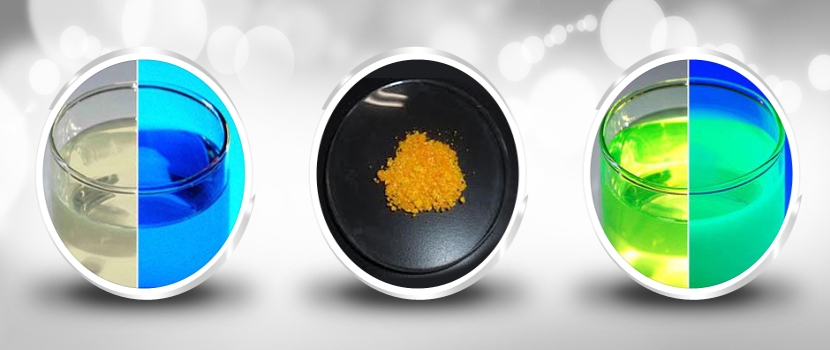Gidc Industrial Estate, Ankleshwar, Gujarat
- GST NO. : 24AABCA6649R1Z5
What Are The Things That You Need To Know Acid Dyes?
Posted by Admin on January, 16, 2021

Acid dyes or anionic dyes contain sulfonate groups that are the reason they fall in the category of organic dyes. These dyes are soluble in water and the dyes have a huge industrial use. According to a renowned Acid Dyes Manufacturers in Mumbai, these dyes are used in plastic industry in making PVC material, in studios, leather colouring, in making of industrial inks, etc. Due to this wide usage, a reputed manufacturer formulate eco-friendly product.
A Brief Idea about the Dyes
An acid dye is a concoction of either the salt of phenolic organic acid, sulphuric or carboxylic. The salt that is present in the dyes is either ammonium or sodium salt. As acid dyes are water soluble so you should know it has amphoteric fibbers with close affinity. You will not find cellulose fibbers in the direct dyes.
In the dying process ionic bonding plays an important role. The fixation of the anions in the bond strengthens the colouring process. During the process you need to add the acids into the dying bath. Adding acids will increase the number of protonated amino groups in the fibbers.
Type of Acids
There are different types of acids that you can use. In the dye-bath that takes place in art studios, or in the laboratory one can use acetic acid which is vinegar. If you use citric acid you will get similar result. In the process the uptake is controlled by sodium chloride. So, when the Acid Dyes Manufacturers formulate the concoction they keep this thing in mind.
Different Usages of Acid Dyes
You will see a heavy use of acid dyes in the textile industries. When it comes to acid dyes in the textiles, acids are mainly effective on the protein fibbers, and on the silk. This is the reason in leather colouring you can hardly find an alternative to acid dyes. You can use acid dying process in colouring synthetic fibbers as well.
Acid dying plays an important role in laboratory and researchers use it in several microscopic examinations. In the laboratories the researchers use the dyes to colour the basic tissues of protein fibbers. On the other hand, scientists also use the same basic dyes to stain the cell nuclei, acidic components of tissues, etc. So, it is evident that acid dyes have several advantages in different sectors.
In the industries, one can create responsive colours with the help of acid dyes. There are reactive dyes that are used for staining the complex type of cellulose. The biggest advantage of dying is that you can get straightforward colour with a good wet speed. If the acid dyes are organic then they will have no disadvantages.
How to Find an Acid Dyes Manufacturer?
By now you have a clear idea about how acid dyes work and where you can use such dyes. Considering its wide usage you need to a manufacturer who offers industrial grade dyes. To find such manufacturer you need to consider the following factors.
- A manufacturer who follows stable formulation to create dyes will be the appropriate one
- You need to find a manufacturer who produce organic dyes
- The product has to be eco-friendly and should not cause soil and water pollution
- You need to find a manufacturer who provides pH balanced acid dyes
- Speaking of eco-friendly production, you need to find out that the manufacturer has Treatment Plant and follows Solid Waste Management
- The manufacturer has to have a well-equipped laboratory
- Lastly, you need to find a manufacturer who is reputed and experienced
Therefore, these are the important factors you need to consider to find a manufacturer. To get the industrial grade product you have to take every step wisely. Besides that, you need to have an idea of market price. You need to find out whether the chosen manufacturer is charging fair price from you.
This entry was posted on January, 16, 2021 at 18 : 08 pm and is filed under Acid Dyes. You can follow any responses to this entry through the RSS 2.0 feed. You can leave a response from your own site.
Search
Category
Recent Posts
- Applications & Widely Applicable Features Of Proprietary Mixed Solvent Dyes
- What Is The Use Of Methylene Blue Zinc Free Solvent Dyes?
- Everything You Need To Know About Scarlet Solvent Dyes
- Applications & Widely Applicable Features of Proprietary Mixed Solvent Dyes
- How Should You Select Solvent Dyeing Manufacturers?


